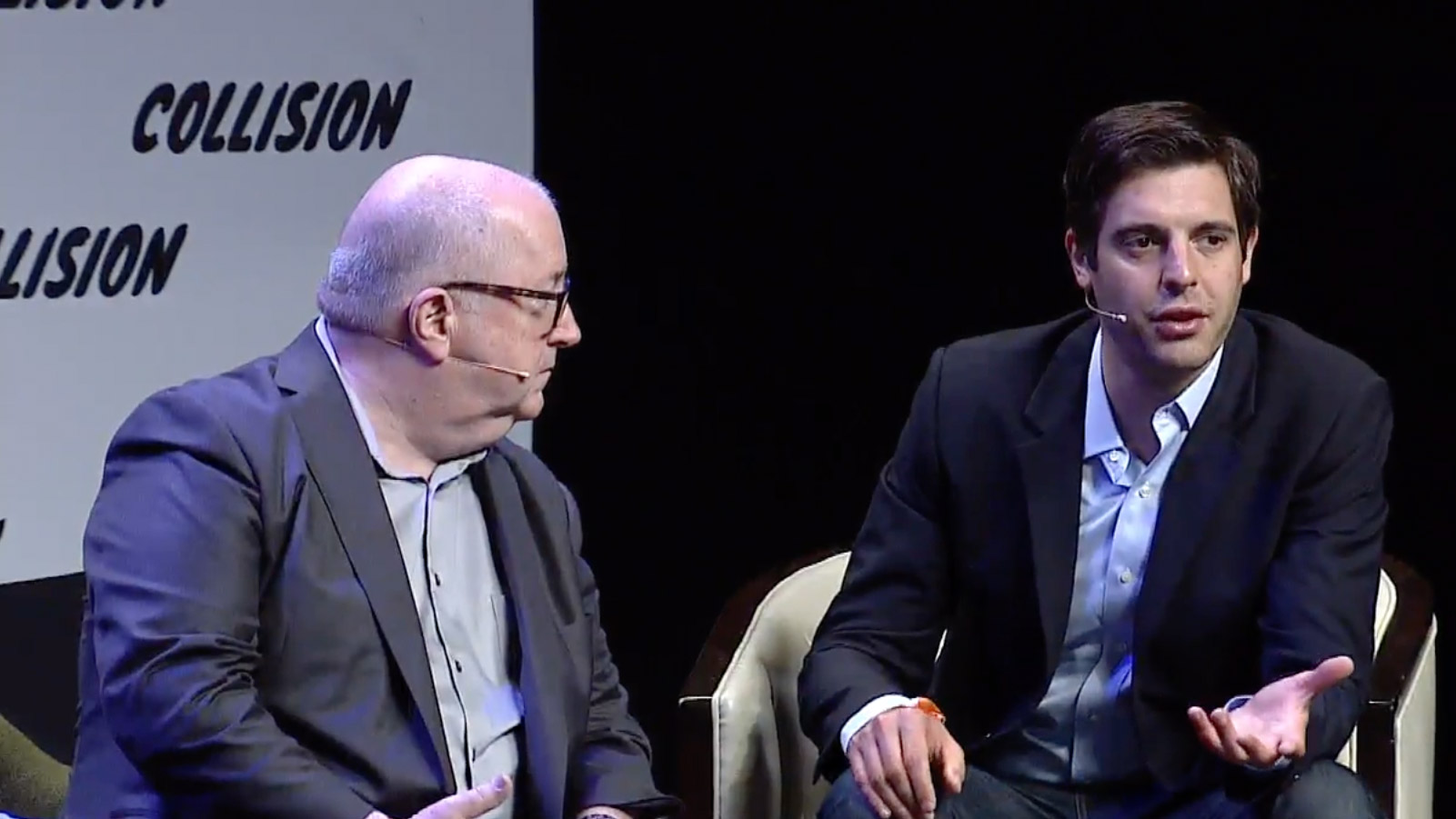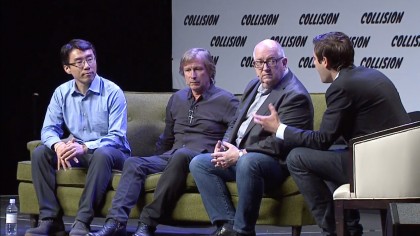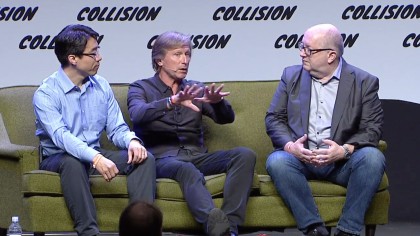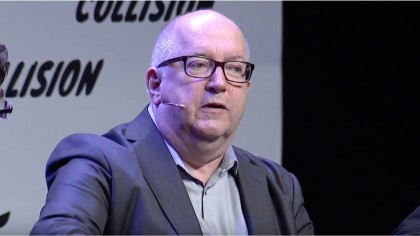The magic of VR is in its democratization
Parallel creation means endless possibilities

We've already established that the world of virtual reality, in its current state, resembles a digital wild west, but that tends to have a negative connotation. Here at Collision Conference in New Orleans, a trio of panelists are positing that the chaos we're witnessing will actually lead to positive outcomes - outcomes we aren't even capable of envisioning just yet.
David Eun, Samsung's Global Innovation Center President, led things off by tackling the "excitement" question, posed by host Steven Bertoni of Forbes. "[In the world of VR], a lot of stuff is happening. I've been focusing a lot on personal storytelling -- not just the stories coming out of big production studios, but out of individuals who can share personal stories and connect more people. It's more than just entertainment and gaming. It's about communicating and holding onto personal life experiences."
Marc Mathieu, Samsung Electronics America's CMO, continued that thought: "It will be consumers doing things on their own while bigger companies are [also] doing things -- these two will encourage one another. Even more exciting about the arrival of this is the invention of a new medium. But also, the democratization of content creation and consumption."
VR: the everyman's medium

The point here is that VR hasn't been put "in the hands of just a few people," with Mathieu understandably citing Samsung's $99 Gear VR headset as the widely accessible tool that'll push folks like you and I to create the first wave of VR content.
When you consider the rise and fall of 3D, you'll recall that the vast majority of 3D content came from huge companies. ESPN launched an entire channel devoted to it, but the production costs were so massive that laypeople largely avoided it. That, you could argue, was the medium's biggest downfall.
Conversely, VR can be captured with sub-$500 camera arrangements and played back on $99 headsets that attach to phones that are already plentiful in the market. The barrier to entry is incredibly low, and moreover, the major production studios don't even have a head start. We're all joining this VR era at the same time, enabling parallel content creation from major studios and budding YouTube stars alike.
Building it together

According to Mathieu (shown above in the middle), "the [VR] medium has not been yet defined, both on the entertainment and the utility side," and he reckons that "people experimenting will democratize it." Eun (sitting far left) followed: "It wasn't one thing that made online video pop, or made YouTube... YouTube. There will be lots of things that become hits. Some of it will be made with the express purpose [of capturing] an audience as large as possible, but some will be one-to-one or one to a small group."
Get daily insight, inspiration and deals in your inbox
Sign up for breaking news, reviews, opinion, top tech deals, and more.
That's an important point. The cost of producing 3D was so high that almost all of it needed to capture a wide audience. Eun suggests that "there will be a lot more gateways to consume the content." In perhaps the best example of the day, he turned to his own experience as a father: "What'll get your dad to try it may not be that high-end video. For those of you who are parents, [imagine] being able to relive your child's first steps and walk around that child and feel like you're there again."
Indeed, that's a potent thing to envision, and it's tough to argue that you'd pass up on the opportunity to relive moments like that on a flat phone screen versus a VR headset, all things being equal.
Glimpsing VR's future

When asked by Bertoni what we'd be discussing in three to five years, Jacques Méthé (President of Cirque du Soleil Media; seen above) spoke up. "The screens will be fabulous -- you won't see pixels anymore. Processing will be better, and there won't be as many technical difficulties in creating fabulous content as there are now."
Eun seconded that notion, adding that "we're in between the hype curve and the adoption curve," and that "mass adoption comes from [Samsung] scaling its hardware and marketing the content." Aptly, he did state that companies like Samsung "can only market what exists," and while he wants to facilitate in any way possible, he's a believer in that "the quantity of content will make the medium."
